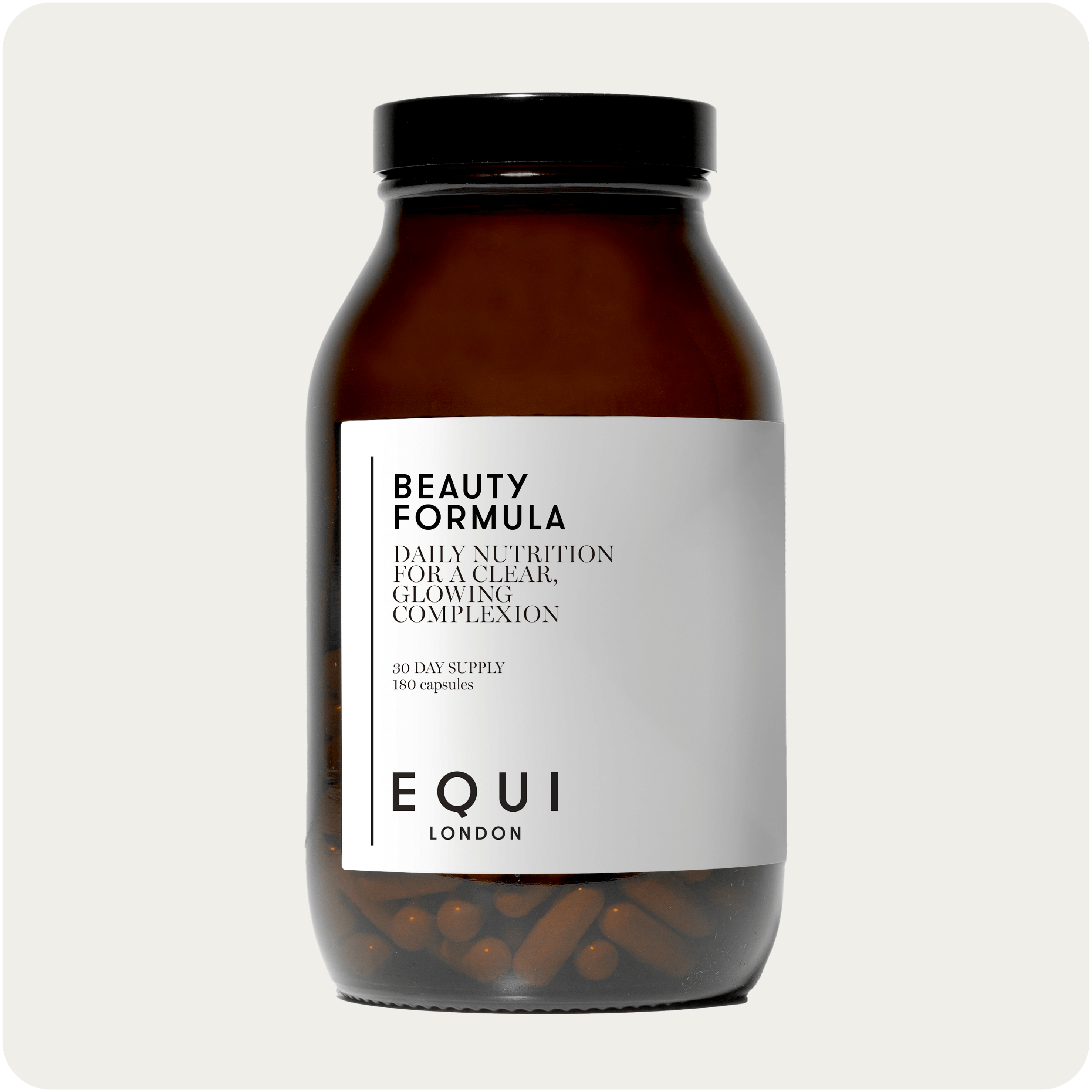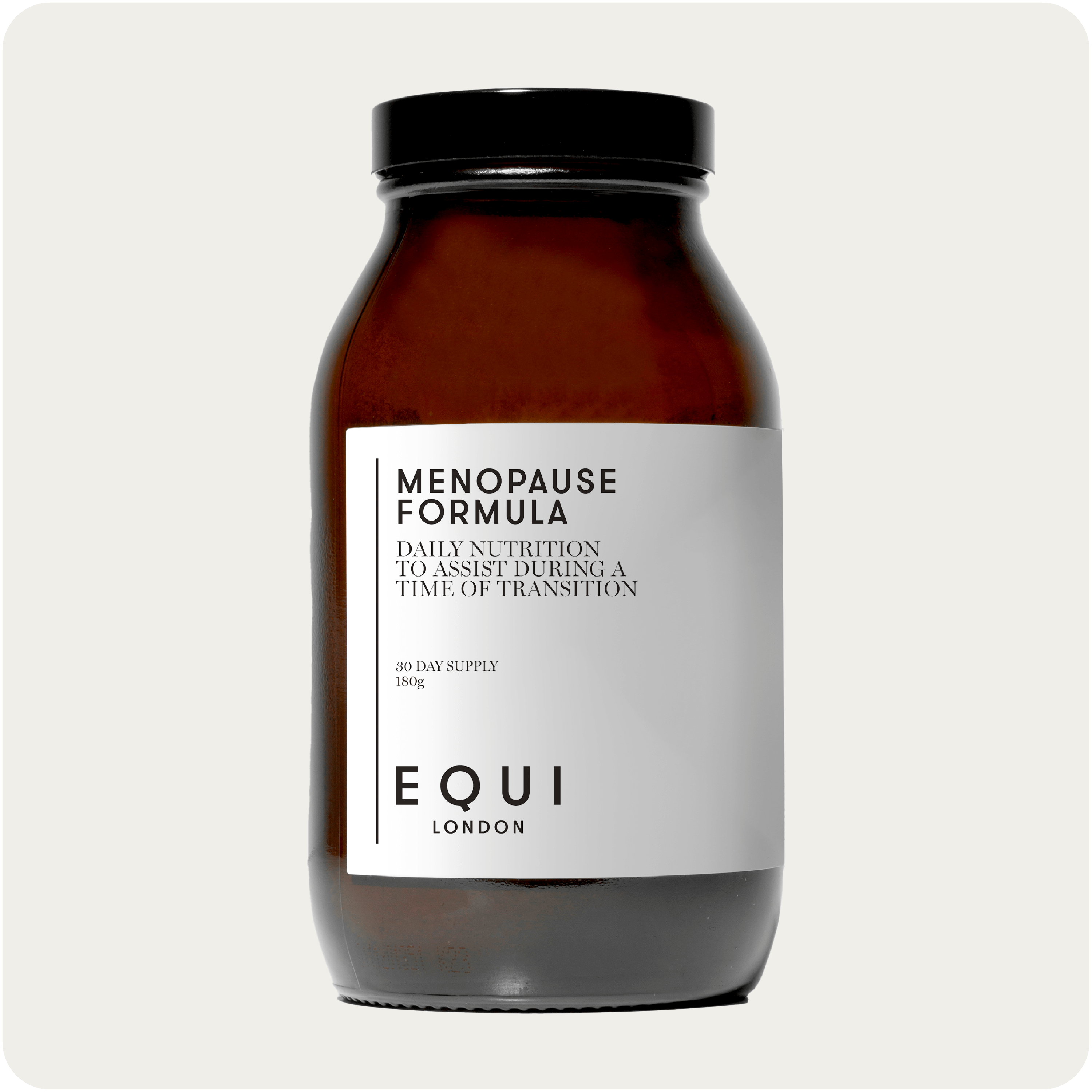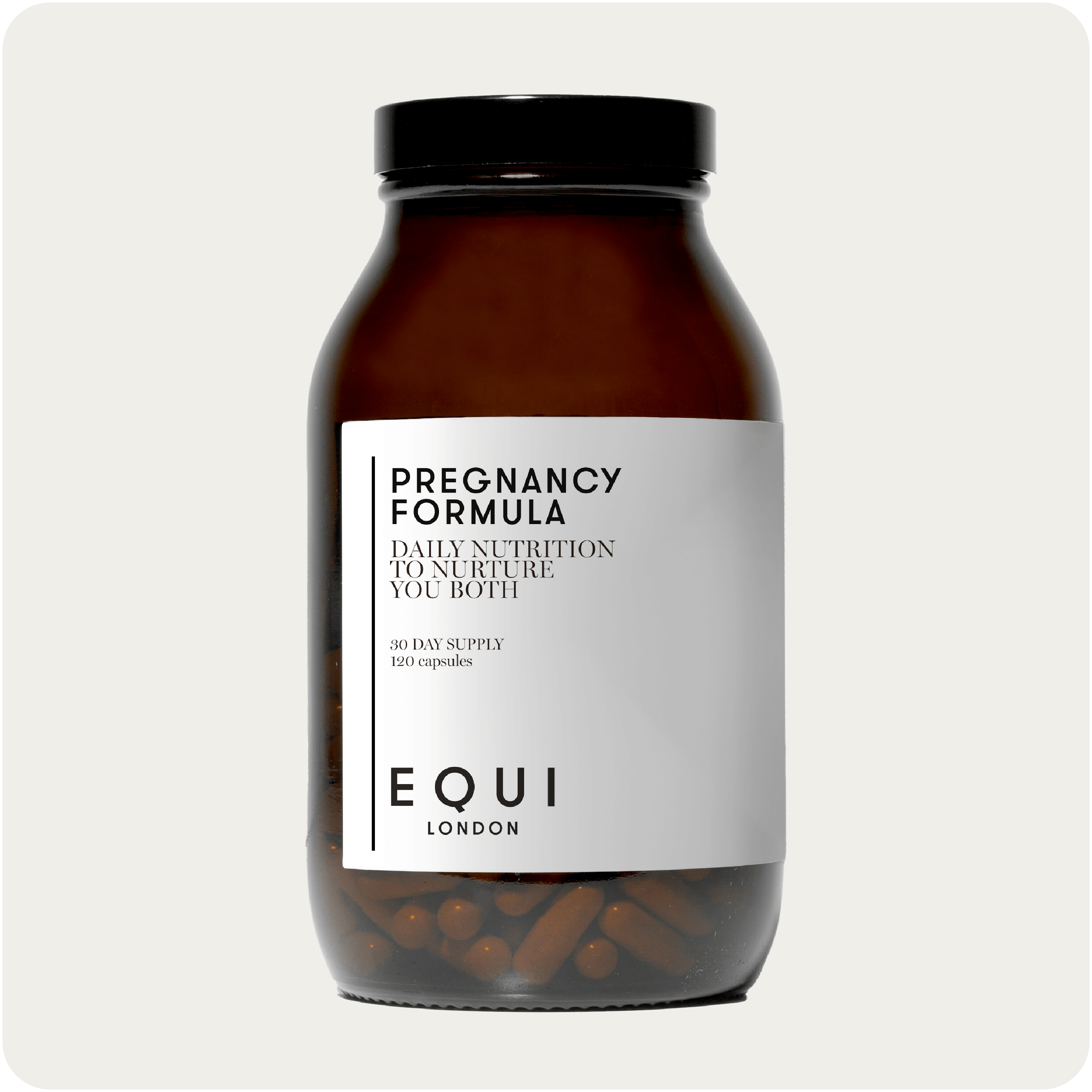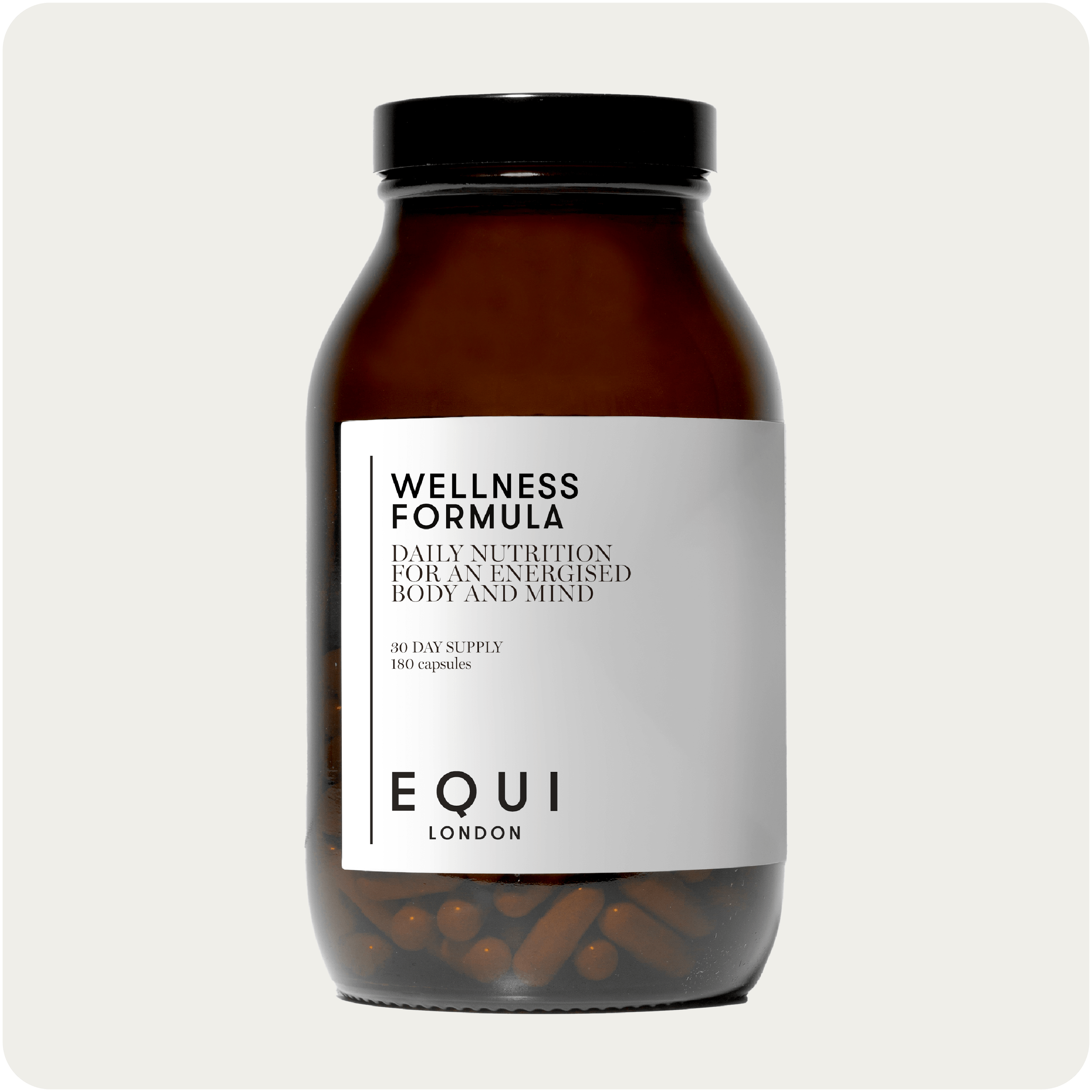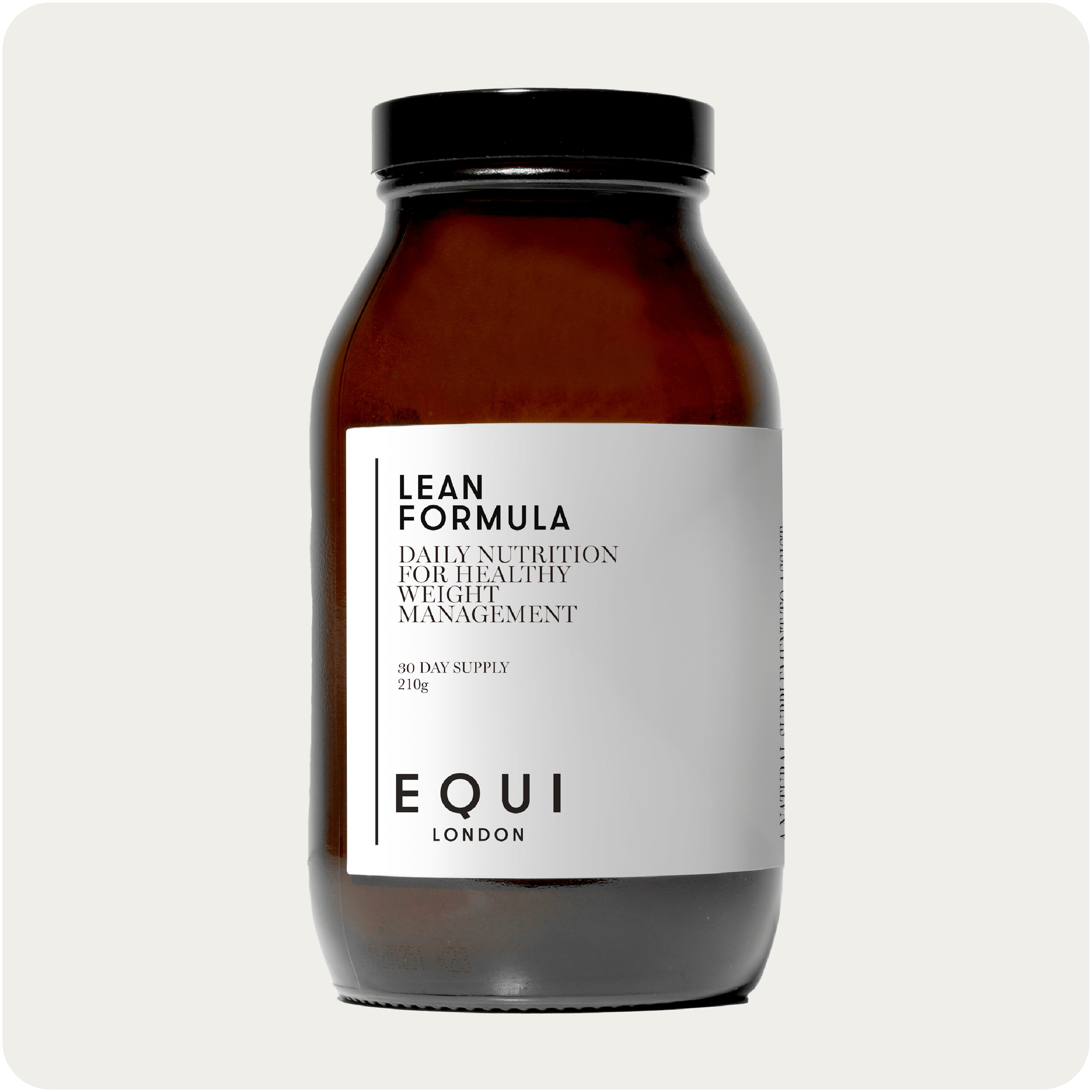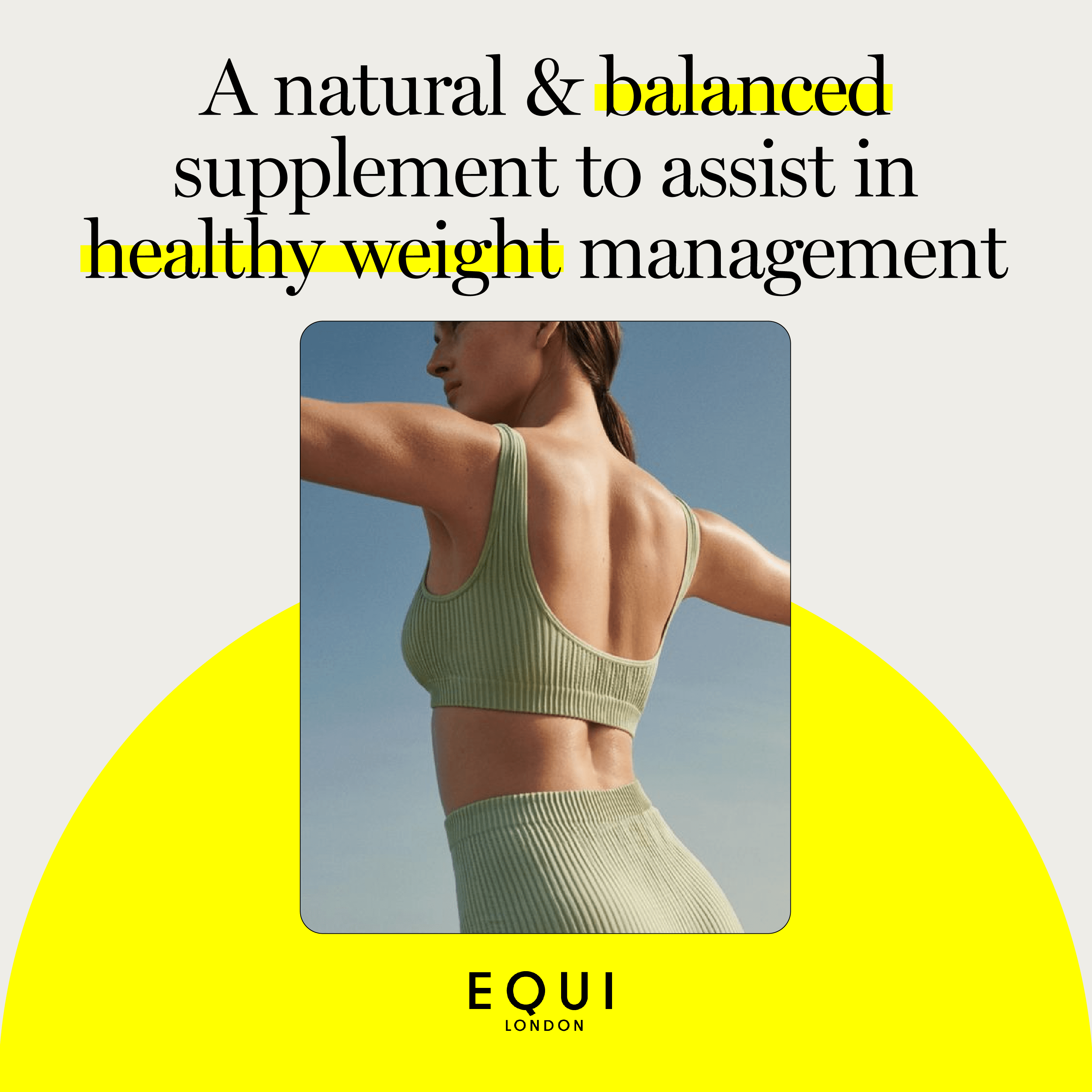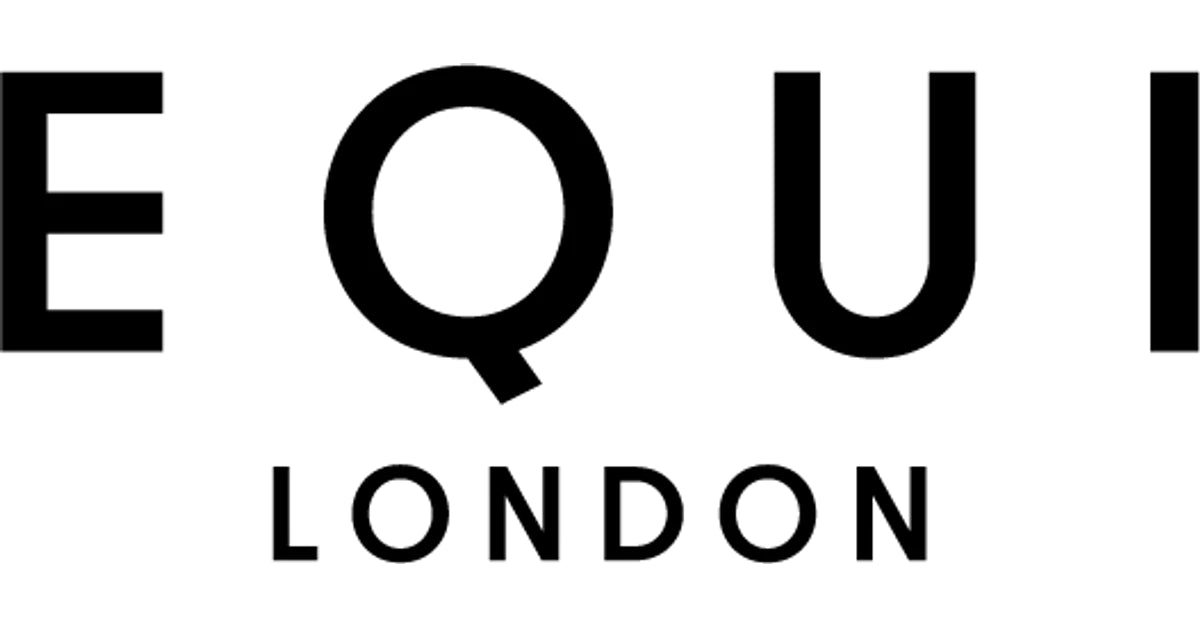Do you find yourself in a constant battle against the sheen of excess oil, which no external product seems to resolve? Are you confused about what your triggers are for oily skin breakouts and want to know how nutrition can help? If you’ve answered yes to either of these, then todays blog is for you! At EQUI, we know that beauty is more than just skin deep, which is why we created Beauty Formula – to address your skin concerns from the inside out. Oily skin, characterised by an overproduction of sebum, can be a mixed blessing. While sebum is essential for protecting and moisturising the skin, too much of it leads to a host of issues, including acne, unwanted shine, and enlarged pores. This excess can impact your skin's natural glow, replacing it with a persistent oiliness that feels impossible to manage. But what really lies behind overzealous oil production? Is it merely down to genetics, or are there underlying factors we can influence from the inside out? This blog delves deep into the science of sebum, unravelling why our bodies produce it, the triggers behind its excess, and the implications of an oily complexion. Understanding the root cause is the first step towards effective management and a clearer complexion. From hormonal fluctuations to dietary habits, several factors can tip the scales, prompting your skin to produce more oil than necessary. Today’s blog is more than just a guide; it's designed to arm you with knowledge and strategies to address one of the most common yet confusing skin concerns—excess oil production.
The spotlight of our discussion shines (excuse the pun!) on the transformative power of supporting beauty from the inside out with targeted nutrition and skincare practices in controlling oil production. Enter Beauty Formula—a blend of 48 of the most effective nutritional compounds that target problem skin, brighten all complexions & promote a youthful glow. It contains a potent blend of star nutrients, including zinc and vitamin A, which help to control sebum production and encourage a clearer, more radiant complexion. But Beauty Formula doesn't end here. At its core is EQUI’s proprietary GlowCutis® blend, a collagen-stimulating, antioxidant powerhouse to nourish skin, hair, and nails. Containing hyaluronic acid, type 1 marine collagen peptides, zinc, vitamin C, pine bark extract, resveratrol & silica, which work together to support every stage of the skin cell cycle. It also contains an advanced multivitamin and mineral complex with adaptogens to support hormonal balance and manage stress, key drivers for excess oil production. What’s more, contrary to common misconceptions, oily skin can significantly benefit from consuming the right types of oils, particularly those rich in Omega 3 fatty acids. Our Beauty Oil Edition is crafted to nourish your skin without exacerbating oiliness, proving that oils can indeed be an oily skin's ally. This section aims to dispel myths and guide you towards embracing oils that can actually help balance your skin's natural oil production. Finally, we will tackle the practical side of managing excess oil—skincare routines and practices. From the cleansing products you choose to the frequency of your skincare rituals, every decision impacts your skin's oil balance. We'll guide you through establishing a routine that keeps oiliness at bay without stripping your skin of its natural, protective oils. Additionally, we'll touch on lifestyle and environmental factors that may contribute to increased sebum production, equipping you with the knowledge to navigate these challenges. Keep on reading as we support you in understanding, managing, and ultimately reducing excess oil production, transforming your skincare routine and your skin in the process.
Sebum and Its Role in Excess Oil Production
Sebum, a complex mixture of lipids produced by the sebaceous glands, is often misunderstood. Far from being an inconvenience, sebum serves as a vital component of healthy skin, acting as a protective barrier against environmental aggressors and preventing dehydration by locking in moisture. Its role is central to maintaining the delicate balance of the skin's ecosystem, ensuring our largest organ remains healthy and resilient. However, when this balance is disrupted, the consequences can manifest as excess oil production, leading to a host of skin concerns. Excess sebum production, or seborrhoea, transforms its protective benefits into problem skin, including oily skin, acne, enlarged pores, and an unwelcome shine that can persist despite our best efforts. This overproduction is often the result of a complex interplay between hormonal imbalances, genetics, and dietary factors.
Firstly, hormones, particularly androgens like testosterone, play an important role in regulating sebum production. Imbalances or fluctuations in these hormones can lead to increased sebum output. For instance, hormonal changes can cause the sebaceous glands to go into overdrive, leading to the oily skin (1). We may experience changes in skin oiliness during different phases of our menstrual cycle, pregnancy, or menopause due to shifting hormone levels. Conditions like polycystic ovary syndrome (PCOS), which is characterised by elevated androgens, can also contribute to excess oiliness and acne. Genetics further complicates the picture, with some predisposed to larger or more active sebaceous glands. If oily skin runs in your family, you're more likely to experience it yourself. Last but by no means least, diet also plays a crucial role in skin health and sebum production. Foods high in sugar and refined carbohydrates can spike insulin levels, which in turn can stimulate sebaceous glands to produce more sebum. On the other hand, research highlights that a balanced diet rich in antioxidants, omega-3 fatty acids, and low-glycaemic foods can support skin health and may help regulate sebum production (2).
So, what are the consequences of excess sebum production you might ask? It can lead to clogged pores and acne, as excess oil combines with dead skin cells and bacteria to form pimples. Enlarged pores can also result from the constant expansion to accommodate the excess sebum. Plus, the persistent shine associated with oily skin can affect makeup application and wear, which if you’ve ever experienced, you’ll know it can lead to frustration and diminished confidence too. Understanding the causes of excess sebum production is the first step towards effective management. Addressing underlying hormonal imbalances, making informed dietary choices, and adopting a skincare routine tailored to managing oily skin can help mitigate the challenges associated with excess sebum as we will soon share. Embracing these strategies can not only improve skin health but also restore confidence, highlighting the importance of a holistic approach to skincare and wellness. Keep reading as we dig into this a little deeper.
Nutritional Support with Beauty Formula
Addressing oily skin and its accompanying challenges requires an approach that goes beyond topical treatments to include nutritional support. Beauty Formula is a standout solution, targeting the issue from the inside out with a blend of key nutrients specifically chosen for their benefits to skin health. Central to this Formula are zinc and vitamin A, two nutrients that together offer a holistic strategy for managing oily skin and promoting a clearer, more balanced complexion. Firstly, zinc plays a crucial role in skin health, known for its anti-inflammatory and antimicrobial properties. It can significantly reduce acne flare-ups by regulating oil production in the skin. Zinc achieves this by inhibiting the activity of the enzyme 5-alpha-reductase, which converts testosterone to dihydrotestosterone (DHT), a hormone that can increase sebum production. Moreover, zinc's ability to reduce inflammation and fight bacteria makes it an essential nutrient for acne-prone skin. Studies have demonstrated that zinc supplementation can lead to a marked improvement in acne severity, highlighting its effectiveness in managing skin conditions (3). Vitamin A is another star ingredient of Beauty Formula, vital for skin cell regeneration. It encourages the shedding of dead skin cells, a process crucial for preventing clogged pores and acne formation. By promoting cell turnover, vitamin A helps diminish the appearance of acne and contributes to a smoother, more even complexion. The retinoid forms of vitamin A are particularly renowned for their skin-renewal properties (4).
We haven’t stopped there - at the heart of Beauty Formula is our proprietary GlowCutis® blend, designed to nourish and support skin, hair, and nails. This blend includes hyaluronic acid, type 1 marine collagen peptides, zinc, vitamin C, pine bark extract, resveratrol, and silica. Each ingredient has been carefully selected for its role in supporting skin health. For example, hyaluronic acid and marine collagen provide hydration and structural support to the skin, while vitamin C and pine bark extract offer potent antioxidant protection. Together, these ingredients work synergistically to support every stage of the skin cell cycle, contributing to a radiant, healthy complexion. In addition to targeted nutrients for skin health, Beauty Formula includes an advanced multivitamin and mineral complex, along with adaptogens. This comprehensive spectrum of bio-available vitamins and minerals is calibrated to support female health, particularly focusing on the regulation of hormonal activity and balance. Adaptogens like schisandra and reishi mushroom extract are included for their ability to support hormone balance and help the body manage stress, a known trigger for skin issues (5).
By integrating these components, Beauty Formula offers a multifaceted approach to managing oily skin and enhancing overall skin health. The combination of zinc and vitamin A, along with the GlowCutis® blend and additional vitamins, minerals, and adaptogens, provides a solid foundation for achieving and maintaining a clear, vibrant complexion. Purchase Beauty Formula here and Total Beauty here.
The Importance of Omega 3 and Beauty Oil Edition for Oily Skin
When it comes to skincare, the notion of adding oils to a regimen designed for oily skin might seem counterproductive at first glance. However, this is simply not the case and the same applies when we consider nutrition. There are multiple benefits of consuming omega 3 fatty acids and Beauty Oil Edition, which is specifically tailored to enhance skin health without aggravating oiliness. What’s more, understanding the role of Omega 3s can revolutionise your approach to managing oily and acne-prone skin. This essential fatty acid rich in fish, nuts, seeds (walnuts and flax) and fish oils such as Beauty Edition’s krill oil, is celebrated for its potent anti-inflammatory properties. These properties are crucial for those of us with oily skin, as inflammation is often a key contributor to acne. The anti-inflammatory action of Omega 3s can help soothe and calm acne-prone skin, reducing redness, swelling, and discomfort associated with breakouts. Research has shown that Omega 3 supplements can significantly affect inflammatory acne's severity and prevalence (6). What’s more, omega 3 fatty acids have been found to modulate sebum production (7). By providing the skin with essential nutrients, they can help normalise sebum production, reducing the likelihood of excessive oiliness. This balancing effect is particularly beneficial for those of us struggling with oily skin, as it addresses one of the core issues—overproduction of sebum—without resorting to stripping the skin of its natural oils.
Beauty Oil Edition stands out due to its careful selection of ingredients, including krill oil, a source of Omega 3 that is plumping, anti-inflammatory and hydrating. Beauty Oil is designed to support skin health from the inside out, offering a targeted approach to nourishing the skin without contributing to excess oiliness. Our formulation understands the unique needs of oily skin types, ensuring that the benefits of Omega 3s can be harnessed without fear of exacerbating oil production. The anti-inflammatory DHA and EPA calms and hydrates, reduces dry patches and redness, giving an overall radiant complexion, meanwhile astaxanthin is a powerful skin antioxidant and choline hydrates and conditions the skin’s cells.
Incorporating Beauty Oil Edition into a skincare routine offers a dual approach to managing oily skin by soothing inflammation that can lead to acne and helping balance natural oil production. This incorporation of Omega 3 fatty acids, through both diet and skincare supplements, provides a holistic method to improve skin health, emphasising nourishment and balance over elimination of oils. Purchase Beauty Oil Edition here.
Skincare Routines and Practices for Managing Excess Sebum
Effective management of oily skin hinges not only on the products we use but also on our understanding and implementation of appropriate skincare routines and practices. Achieving a balance between removing excess oil and maintaining our skin's natural protective barrier is key to controlling sebum production and enhancing skin health. Gentle cleansing is key when it comes to managing oily skin. Whilst it’s important to cleanse the skin of excess oil and impurities you want to do this without stripping it of its essential moisture. For example, over-washing and using harsh cleansers can trigger the skin to produce more oil as a defensive measure against perceived dryness. Studies highlight the importance of using cleansers that maintain the skin's natural pH and barrier function to prevent over-drying and irritation (8). In addition, mild exfoliation is beneficial for removing dead skin cells and unclogging pores, reducing oiliness, and improving skin texture. However, the frequency and type of exfoliation should be carefully considered to avoid over-exfoliation, which can damage the skin barrier and exacerbate oil production. A balance can be achieved with the use of gentle exfoliants that promote cell turnover without causing irritation. Another strategy to manage oily skin is by choosing non-comedogenic products. These products are formulated to not clog pores, reducing the risk of acne outbreaks associated with excess sebum. Using non-comedogenic cleansers, moisturisers, oils, sunscreens, and makeup that won’t contribute to pore blockage can significantly aid in managing oiliness and preventing acne.
Finally, identifying and managing triggers that can worsen oily skin is essential. For example, harsh skincare products containing alcohol or astringents can dehydrate the skin, leading to increased sebum production and over-exfoliation can strip the skin of its natural oils, prompting a compensatory increase in oil production. What’s more, psychological stress has been shown to exacerbate skin conditions, including oiliness, through the production of stress hormones that stimulate oil glands. Studies highlight the impact of stress on skin, emphasising the need for stress management as part of skincare (9).
By adopting a balanced skincare routine that includes gentle cleansing, the use of non-comedogenic products, gentle exfoliation, and stress management can profoundly impact the control of excess sebum production. Understanding our skin's needs and avoiding practices that trigger increased oiliness are fundamental steps toward achieving a clearer, healthier complexion. By emphasising gentle care and protection of the skin's barrier, those of us with oily skin can effectively manage this and improve the skin's overall appearance and health.
Disclaimer: All of the information on this website is provided for general information only, it should not be treated as a substitute for the medical advice of your own doctor or any other health care professional providing personalised nutrition or lifestyle advice. If you have any concerns about your general health, you should contact your local health care provider. No one diet or supplement regime works for everyone and you should always seek help from a GP and registered health expert before making changes to your diet, or before introducing any supplements. This is especially important when pregnant.
References
- Bagatin E, Freitas THP, Rivitti-Machado MC, Machado MCR, Ribeiro BM, Nunes S, Rocha MADD. (2019). Adult female acne: a guide to clinical practice. An Bras Dermatol. 94(1), pp. 62-75.
- Lim S, Shin J, Cho Y, Kim KP. (2019). Dietary Patterns Associated with Sebum Content, Skin Hydration and pH, and Their Sex-Dependent Differences in Healthy Korean Adults. Nutrients.11 (3), p. 619.
- Yee BE, Richards P, Sui JY, Marsch AF. (2020). Serum zinc levels and efficacy of zinc treatment in acne vulgaris: A systematic review and meta-analysis. Dermatol Ther. 33(6), e14252.
- Cook M, Perche P, Feldman S. (2022). Oral Vitamin A for Acne Management: A Possible Substitute for Isotretinoin. J Drugs Dermatol. 21(6), pp. 683-686.
- Li J, Wang J, Shao JQ, Du H, Wang YT, Peng L. (2015). Effect of Schisandra chinensis on interleukins, glucose metabolism, and pituitary-adrenal and gonadal axis in rats under strenuous swimming exercise. Chin J Integr Med. 21(1), pp. 43-8.
- Khayef, G., Young, J., Burns-Whitmore, B., & Spalding, T. (2012). Effects of fish oil supplementation on inflammatory acne. Lipids in Health and Disease, 3, 11, p. 165.
- Guertler, Anne & Neu, Katharina & Fiedler, Tobias & Kuna, Anne‐Charlotte & Kämmerer, Till & Lill, Diana & French, Lars & Reinholz, Markus. (2022). Clinical effects of omega‐3 fatty acids on acne vulgaris. JDDG.
- Ananthapadmanabhan, K. P., Moore, D. J., Subramanyan, K., Misra, M., & Meyer, F. (2004). Cleansing without compromise: the impact of cleansers on the skin barrier and the technology of mild cleansing. Dermatologic Therapy, 17(s1), pp. 16-25.
- Zouboulis, C. C., & Böhm, M. (2004). Neuroendocrine regulation of sebocytes – a pathogenetic link between stress and acne. Experimental Dermatology, 13(Suppl 4), pp. 31-35.
